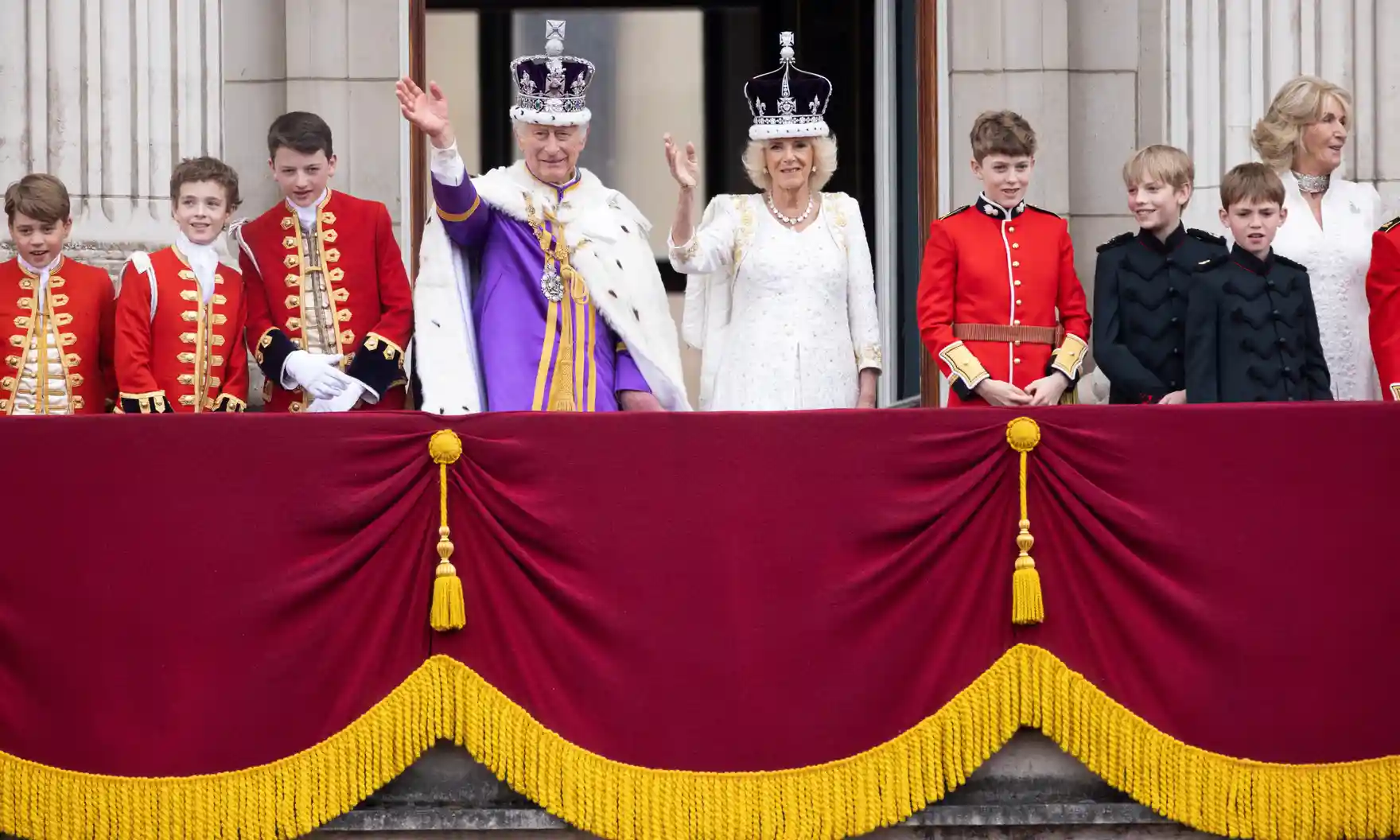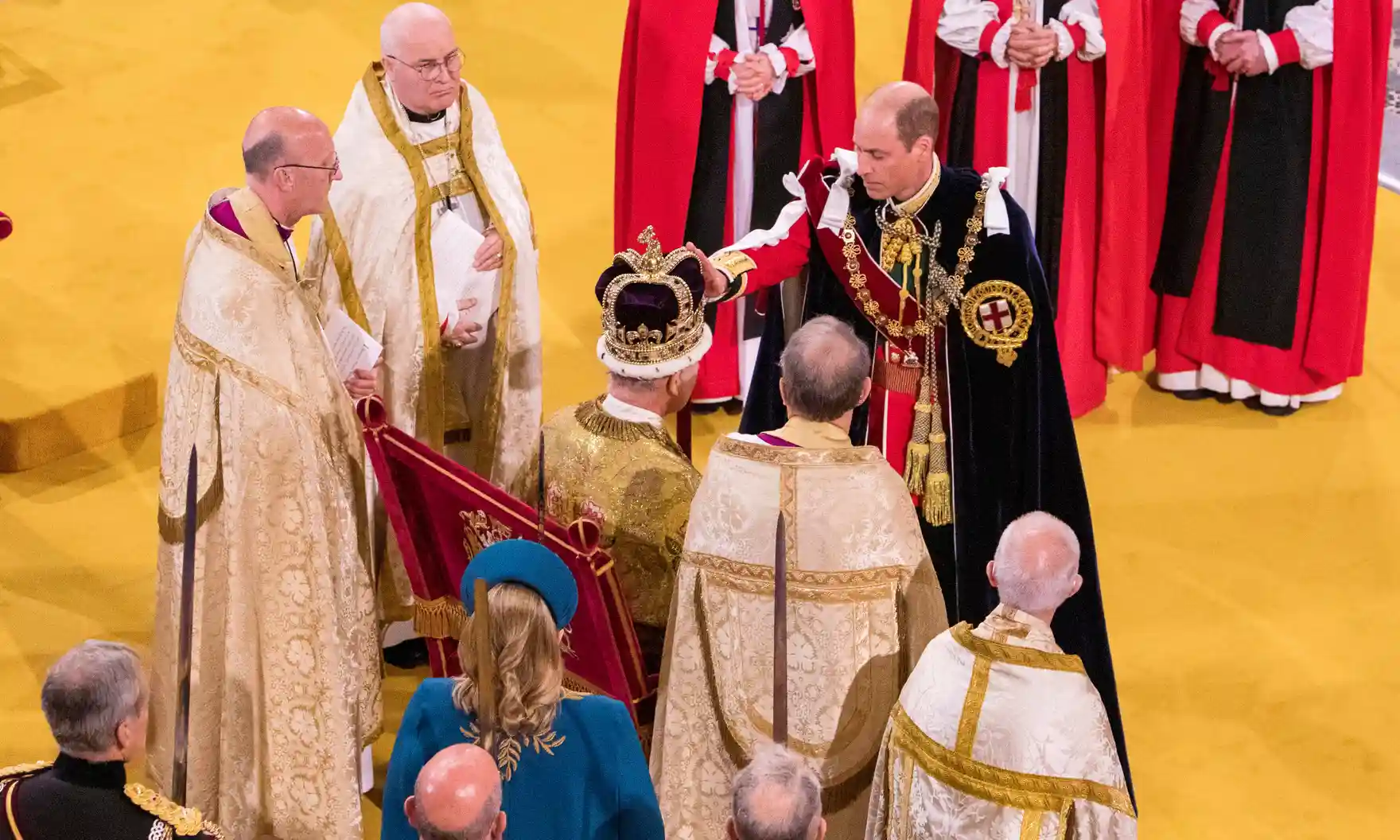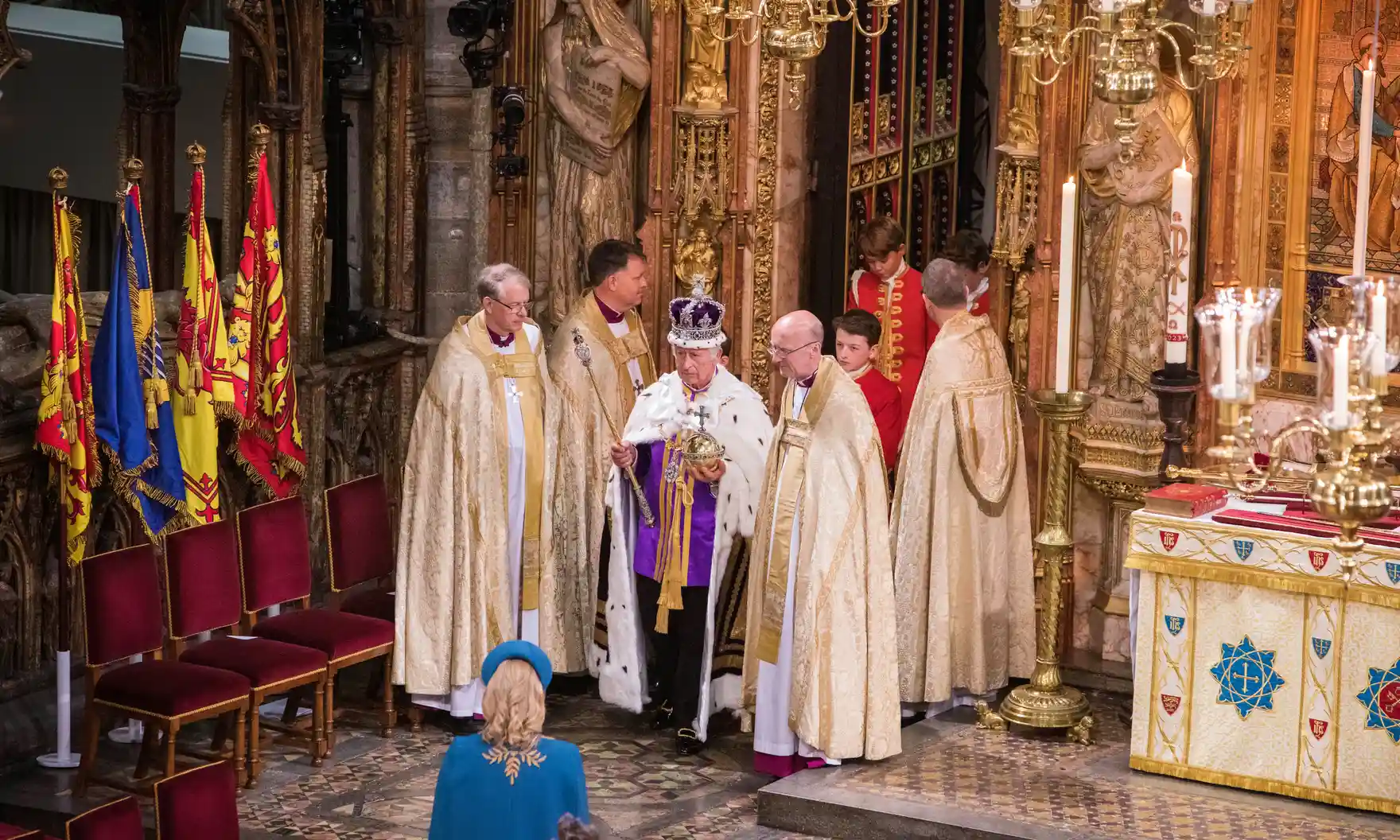King Charles III’s coronation occurred on Saturday, May 6, 2023, at Westminster Abbey in London.
The coronation of King Charles III was a highly anticipated event in the United Kingdom, as it marked the beginning of a new era for the country. The coronation ceremony is steeped in tradition and symbolism and celebrates the monarchy and the country’s rich history. The ceremony took place at Westminster Abbey, the site of every coronation since 1066, was attended by members of the royal family, government officials, and foreign dignitaries. The coronation was presided over by the Archbishop of Canterbury, who anointed the new King with holy oil and presented him with the symbols of his office, including the crown, sceptre, and orb. The event was broadcast live worldwide and drew millions of viewers.

Symbolism and Tradition of the Coronation Ceremony
The coronation ceremony is highly symbolic, with each element representing a different aspect of the monarchy and the country. The anointing of the King with holy oil represents the divine right of kings, while the presentation of the crown, sceptre and orb represents the King’s authority and power. The coronation ceremony is a significant event in the United Kingdom’s history, steeped in tradition and symbolism. It serves as a reminder of the monarchy’s role as a symbol of unity and continuity in the country. The coronation ceremony is steeped in tradition and has been performed for over a thousand years, with each monarch adding their unique touch to the proceedings. It is a symbol of continuity and stability amid changing times.
The Importance of the coronation ceremony in British history and the monarchy’s role as a symbol of unity and continuity.
The coronation of King Charles III provided an opportunity for the country to come together and celebrate its rich history and traditions. The ceremony was watched by millions worldwide and showcase the country’s culture and heritage. The coronation also marked the beginning of a new era for the country as King Charles III took on the responsibilities of the monarchy and continues to uphold the values and principles that have defined the nation for centuries. It was a momentous occasion that will be remembered for generations to come. The coronation oath, which the King will took, is a solemn promise to uphold the country’s laws and traditions and serve the people of the United Kingdom. The coronation is also an opportunity for the government to showcase its culture and heritage to the world. The coronation ceremony has remained unchanged for centuries, making it a unique and vital event in British history. It is also a symbol of continuity and stability, highlighting the enduring nature of the monarchy in the UK.
Protocol observed.
The coronation ceremony is a religious service that follows a tradition that dates back to the 11th century. It is led by the Archbishop of Canterbury, the most senior bishop of the Church of England. The ceremony occurs at Westminster Abbey, a historic church where many kings and queens have been crowned.
The King swore an oath to be faithful to his people and to uphold the laws and customs of his realms. He also promised to maintain the Church of England as the established church. He pledged to respect other faiths; as he has said before, he wants to be a “defender of the faith” rather than “the faith”, meaning that he wants to protect the freedom of religion for everyone. The King was anointed with holy oil on his hands, chest, and head by the Archbishop of Canterbury. This sacred moment symbolised the King’s consecration, or setting apart, for his role as a monarch. This part of the ceremony was be shown to the public, as it is considered too holy and personal. The King was invested with various regalia or symbols of his authority and dignity. He wore two crowns: the St Edward’s Crown, which is made of gold and jewels and is used only for coronations, and the Imperial State Crown, which is lighter and more comfortable and is used for other occasions. The King was enthroned on the Chair of Estate, a unique coronation chair. It differs from the Coronation Chair, which holds the Stone of Scone, a stone used for Scottish coronations since ancient times. The King received homage from members of his family, peers of the realm and bishops, who swore allegiance to him and kissed his hand. The ceremony ended with a benediction from the Archbishop of Canterbury, a national anthem and a fly-past, or aerial display, by the Royal Air Force.
The King and Queen Consort then left Westminster Abbey in a carriage procession back to Buckingham Palace, where they greeted the public from the balcony.

What is the Diplomacy regarding the King’s Coronation and the United Kingdom relations?
The coronation is a state occasion, which means the government controls the guest list. In addition to the Royal Family, those invited included the Prime Minister, Representatives from the Houses of Parliament, Heads of State and other royals worldwide. The government used the ceremony as an important diplomatic opportunity to present the UK to the world. The coronation also reflected the monarch’s role today and, in the future, while rooted in long-standing traditions and pageantry. The government had to balance the cost of the coronation with the public mood and the cost-of-living crisis. As a result, the dress code for attendees was more casual, and the ceremony was shorter and had a smaller guest list than previous ones. The coronation affected the UK’s relations with its former colonies and overseas realms.

The Diplomatic approach of King Charles III during his reign.
The diplomatic approach of King Charles III during his reign is a matter of speculation, as he has only been on the throne for a few months. However, based on his previous work as The Prince of Wales and public statements, the King has established over 20 charities over 40 years, including The Prince’s Trust, The Prince’s Foundation and The Prince of Wales’s Charitable Fund (PWCF). His Majesty has worked closely with many organisations, publicly supporting various causes relating to the environment, rural communities, the built environment, the arts, healthcare and education. He will use his influence and platform to promote these causes and collaborate with other leaders and organisations worldwide.
The King has shown an interest in and respect for various faiths and cultures, including Islam. He has travelled to numerous Muslim countries and engaged with religious leaders and scholars. Additionally, he aims to protect the freedom of religion for all and considers himself a “defender of faith” rather than “the faith”. In addition, he may foster interfaith dialogue and understanding among different communities and nations.
Bibliography
BBC News. “King Charles: When Is the Coronation and Is There a Bank Holiday?” Accessed May 3, 2023. https://www.bbc.com/news/uk-63543019.
Peoplemag. “King Charles’ Coronation: Live Updates and Everything to Know About the Crowning Ceremony,” April 14, 2023. https://people.com/royals/king-charles-coronation-everything-to-know-queen-camilla/.
The Independent. “All the Ways King Charles’ Coronation Is Expected to Break from Royal Protocol,” May 3, 2023. https://www.independent.co.uk/life-style/royal-family/royal-protocol-king-charles-coronation-camilla-b2331405.html.
MSN. “Wexford Aontú Councillor Blasts Sinn Féin over King Charles Coronation Attendance – ‘It’s a Sad Day When Irish Republicans Attend the Coronation of a King.’” Accessed May 3, 2023. https://www.msn.com/en-ie/news/other/wexford-aont%C3%BA-councillor-blasts-sinn-f%C3%A9in-over-king-charles-coronation-attendance-it-s-a-sad-day-when-irish-republicans-attend-the-coronation-of-a-king/ar-AA1aC61p.
Independent. ie. “Wexford Aontú Councillor Blasts Sinn Féin over King Charles Coronation Attendance.” Accessed May 3, 2023. https://www.independent.ie/regionals/wexford/wexford-district/wexford-aontu-councillor-blasts-sinn-fein-over-king-charles-coronation-attendance/a1959999919.html.
Sources of pictures in order of appearance:
1: Graeme Robertson/The Guardian
2: Gary Calton/The Observer
3: Gary Calton/The Observer




